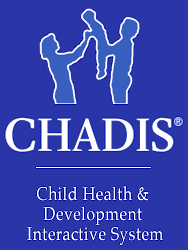We are very excited to announce that we have received our first shipment of nirsevimab (Beyfortis) from the state VFC program. And that means we can make it available to any child under 8 months of age. We will be offering it at all our regular care visits, but, if parents would like their children to receive it outside of a visit already scheduled, you can call us and we will put you on the schedule.
While many will already be aware of the details from recent press coverage, let me back up for a moment. Nirsevimab (I know. Awful name.) is a monoclonal antibody for RSV (Respiratory Syncytial Virus). It provides passive, temporary protection from severe infection and one dose is expected to last all season. It was approved this past summer for all children under 8 months, and for children at high risk up to 24 months. It is being supplied through the VFC (Vaccines For Children) Program so that we can make it available to everyone regardless of their insurance coverage.
RSV is a common winter virus and a major challenge for children and elderly patients. Every year in the US it leads to 2.1 million doctor visits, 58,000-80,000 hospitalizations, and 100-300 deaths in children younger than 5 years. Young babies are at the highest risk. Up until now, there was very little that could be offered these patients, other than supportive care, fluids and oxygen. Medical therapies have been mostly ineffective and previous vaccine efforts have failed to produce a safe and effective option. However, clinical trials show that nirsevimab can reduce severe infections due to RSV by 75%!!
Nirsevimab is injected but it is not really a vaccine. Vaccines provide long lasting immunity by training your body to produce a protective response to an infectious disease prior to actual exposure. Monocolonal antibodies, on the other hand, provide temporary protection with antibodies, but the benefits fade over time because the body does not learn from them. So there is no long lasting immunity. Some may be familiar with an older product that was available for RSV called Synagis (palivizumab) that was somewhat similar, but it had to be given every month, it was way more expensive, and only approved for use in children with multiple medical risk factors. Nirsevimab is expected to provide protection for at least 5 months, is approved for everyone under 8 months, and it will be provided at no cost through the VFC program. One shot will get a baby through the whole RSV season.
Obviously, with any new product there are going to be important safety questions that must be answered, and there are always some questions that can only be answered over time. However, the clinical trials showed very low risks of adverse events, with the most common side effects being rash and local injection site reactions in 1% of cases. It should not be given to anyone with a history of allergy to any of its components, but that would be extremely rare. Monoclonal antibodies in general have excellent safety profiles, with low risks for adverse events, and the same is expected here.
Many families will choose not to use nirsevimab this season simply because it is new, and that is very understandable. However, for anyone interested, it is a very exciting new option and hopes are high that it will make a big difference in a huge pediatric problem. We have hospitalized many children for RSV over the years. Reducing that risk by 75% will be a game-changer.



